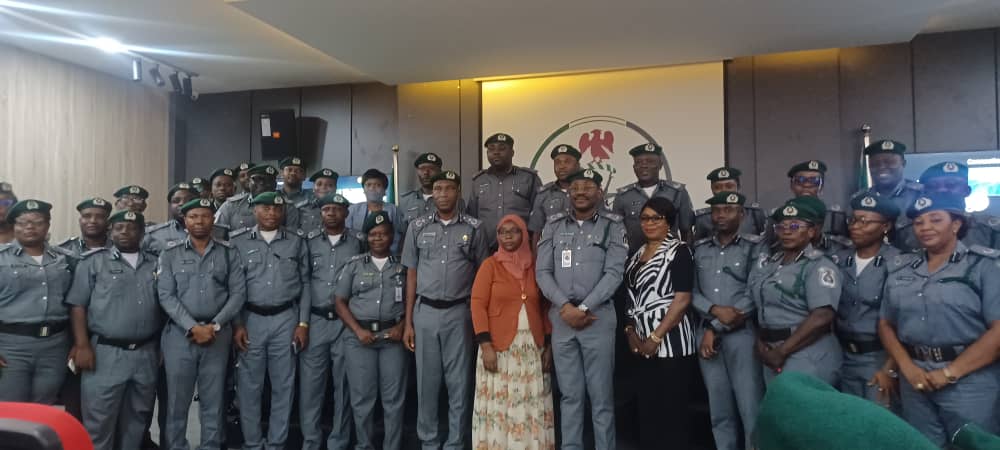The Apapa Customs Command has collaborated with the Independent Corrupt Practices and Other Related Offenses Commission (ICPC) to educate its newly promoted officers on integrity, transparency, and accountability in public service.
The training session took place on Thursday at the Command, where the Customs Controller, Babatunde Olomu, emphasized the importance of fostering trust and sustainable development within public institutions, particularly the Nigeria Customs Service (NCS). He stated that transparency and accountability are not just ideals but essential pillars that support good governance and ensure public servants act in the best interests of the citizens they serve. He further noted that the lecture came at a crucial time when Nigeria is working to strengthen its institutions and promote a culture of integrity in the public sector. Encouraging officers to embrace these principles, he expressed confidence that a more transparent and accountable public service would uphold ethics, responsibility, and professionalism.
Representing the Resident Commissioner for ICPC Lagos, Mrs. Florence Bariboloka urged Customs officers to uphold integrity in carrying out their responsibilities. She encouraged them to adopt the Ethics and Integrity Compliance Scorecard, already implemented in over 280 Ministries, Departments, and Agencies (MDAs) across Nigeria, as a tool to enhance their commitment to ethical standards.
During a lecture titled “Transparency and Accountability in Public Service,” Rabiat Umar, an Anti-Corruption and Transparency Officer at ICPC Lagos, highlighted the detrimental effects of corruption on Nigeria’s economic development. She described corruption as bribery, fraud, nepotism, extortion, embezzlement, and inflation of contracts, attributing its causes to greed, peer pressure, lack of accountability, poverty, and the absence of integrity. She defined transparency as openness and honesty in governance, while accountability involves taking responsibility for one’s actions in positions of trust.
To entrench these values in public service, she emphasized the need for commitment to prompt service delivery, consistent application of codes of conduct, trustworthiness, and recognition of officers who demonstrate ethical behavior. She noted that transparency and accountability boost morale, enhance performance, foster open communication, and improve Nigeria’s global image.
Encouraging Customs officers to embody these principles, she urged them to respond promptly to official duties, take responsibility for their actions, uphold ethical standards, and lead by example. Stressing that Customs officers are the face of the nation at entry points, she charged them to operate with integrity and adhere to all existing regulations guiding their operations.
